U.S. scientists took thousands of unauthorized blood samples from an indigenous group known for a unique genetic profile and disease immunity, some of which have been sold, Ecuador charged Monday.
There were some "3,500 procedures" in which blood was drawn without authorization from 600 Huaorani, who live in a corner of Ecuador's isolated Amazon basin region, said Rene Ramirez, head of the Higher Education and Science Ministry.
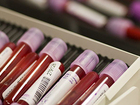 Full Story
Full Story
British authorities advised consumers on Monday against washing chicken saying that, contrary to common belief, the practice could lead to food poisoning.
The warning was aimed at the 44 percent of Britons who wash raw chicken before cooking it, according to a survey by Britain's Food Standards Agency (FSA).
 Full Story
Full Story
The e-cigarette market has nearly 500 brands and is expanding at a rate of 10 brands per month, according to a survey published Monday in the health journal Tobacco Control.
In a trawl of the Internet, U.S. researchers found that as of January 2014 there were 466 brands, each with their own website, and 7,764 different flavors.
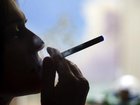 Full Story
Full Story
With trousers around his ankles, Justin Igalla awaits a tight rubber band for his foreskin, an innovative non-surgical technique rolling out in several African nations to encourage circumcision and cut HIV infection rates.
The simple device -- two plastic rings and an elastic band -- cuts off blood supply to the foreskin, which then shrivels and is removed with the band after a week.
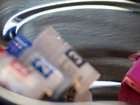 Full Story
Full Story
Scientists have made big progress on a "bionic pancreas" to free some people with diabetes from the daily ordeal of managing their disease. A wearable, experimental device passed a real-world test, constantly monitoring blood sugar and automatically giving insulin or a sugar-boosting drug as needed, doctors said Sunday.
The device improved blood-sugar control more than standard monitors and insulin pumps did when tested for five days on 20 adults and 32 teens. Unlike other artificial pancreases in development that just correct high blood sugar, this one also can fix too-low sugar, mimicking what a natural pancreas does.
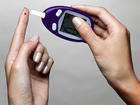 Full Story
Full Story
While World Cup referees finally have goal-line technology to prevent mistakes, doctors in Brazil will soon have their own computer gizmo to contain dengue outbreaks.
In the tropical northeastern city of Natal, a new smartphone application could allow residents to alert authorities about the location of concentrations of mosquitos and cases of dengue with the touch of a finger.
 Full Story
Full Story
A super-enriched banana genetically engineered to improve the lives of millions of people in Africa will soon have its first human trial, which will test its effect on vitamin A levels, Australian researchers said Monday.
The project plans to have the special banana varieties -- enriched with alpha and beta carotene which the body converts to vitamin A -- growing in Uganda by 2020.
 Full Story
Full Story
A Chinese government official who blamed lead poisoning in more than 300 children on the possible chewing of school pencils was excoriated in state-run media and ridiculed online Monday.
Lead levels as high as three times national standards were found in the blood of children in a village in the central province of Hunan, with the contamination blamed on pollution from a local chemical plant, the official news agency Xinhua reported.
 Full Story
Full Story
Easily distracted? Can't be separated from your smartphone? Constantly checking your device for no real reason? Chances are you're an addict -- and you may even need professional help.
Psychiatrists in Singapore are pushing for medical authorities to formally recognise addiction to the Internet and digital devices as a disorder, joining other countries around the world in addressing a growing problem.
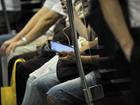 Full Story
Full Story
American teens are smoking less, drinking less and fighting less. But they're texting behind the wheel and spending a lot of time on video games and computers, according to the government's latest study of worrisome behavior.
Generally speaking, the news is good. Most forms of drug use, weapons use and risky sex have been going down since the government started doing the survey every two years in 1991. Teens are wearing bicycle helmets and seat belts more, too.
 Full Story
Full Story



